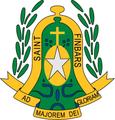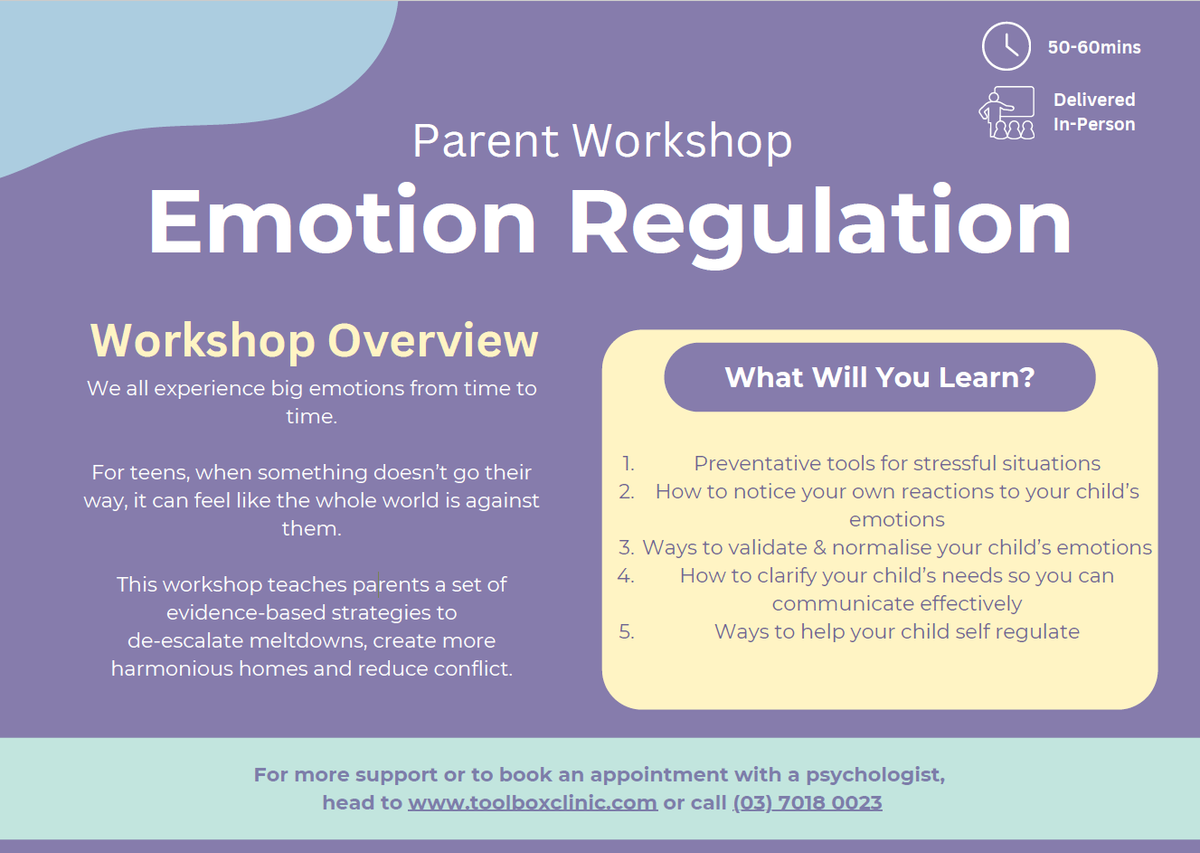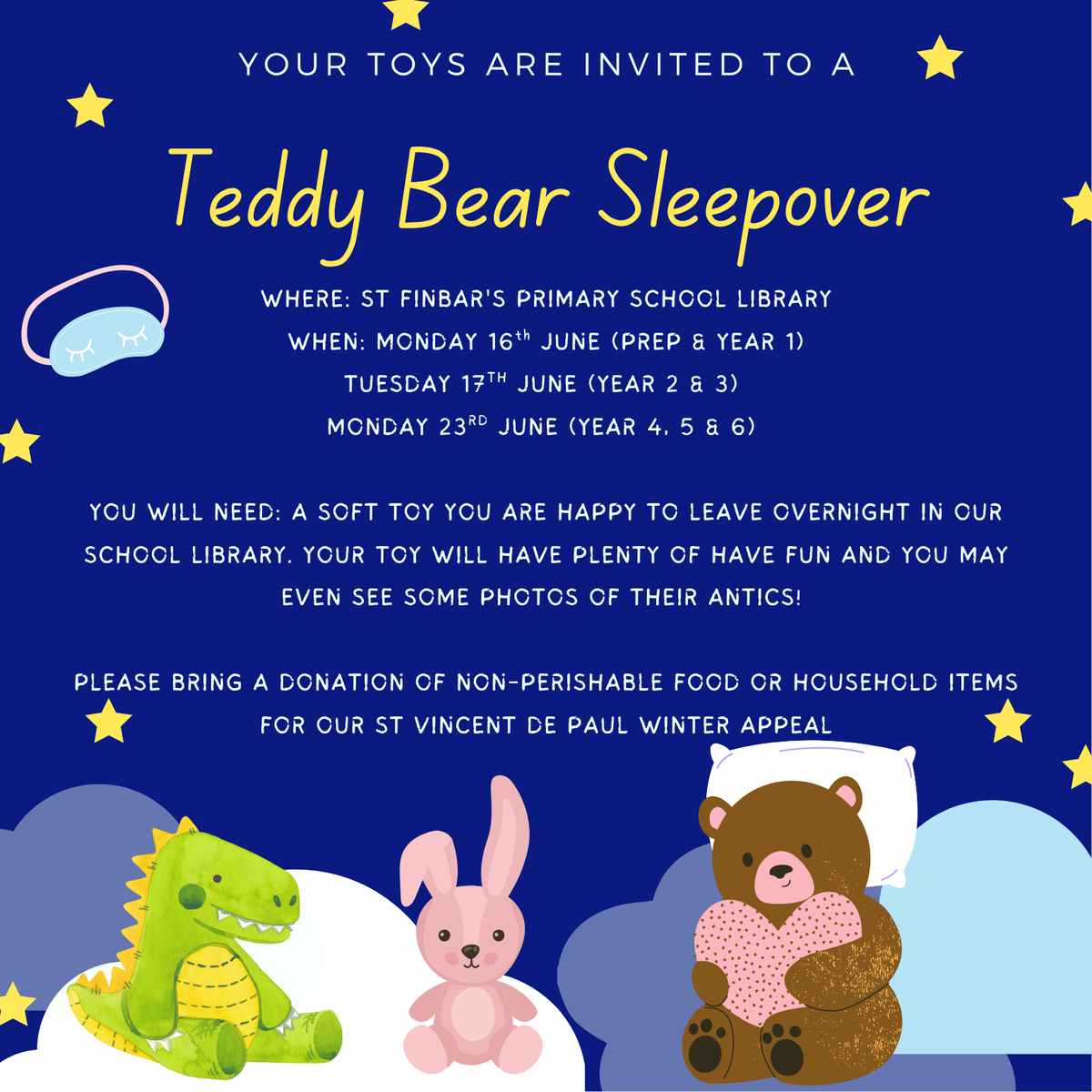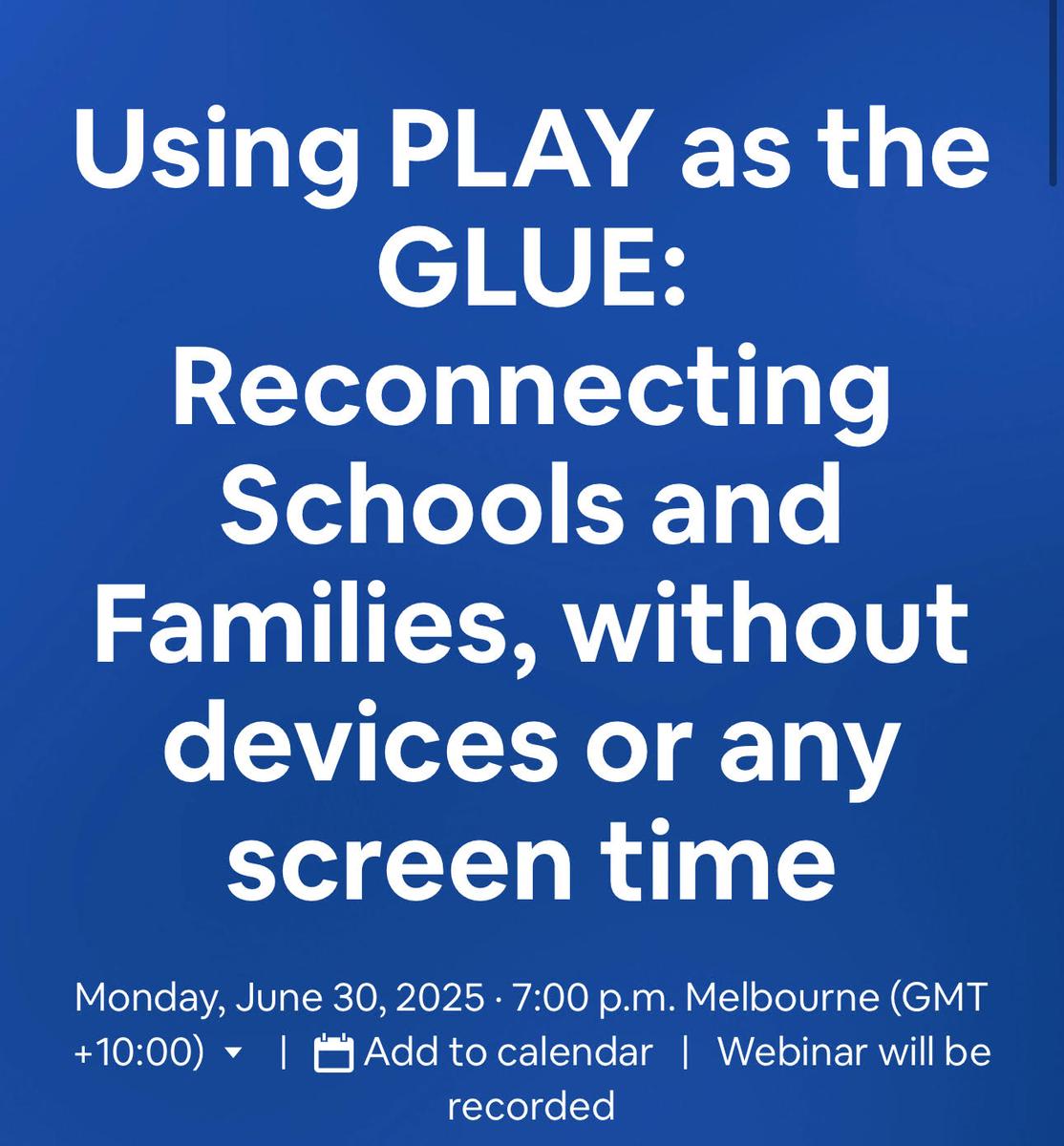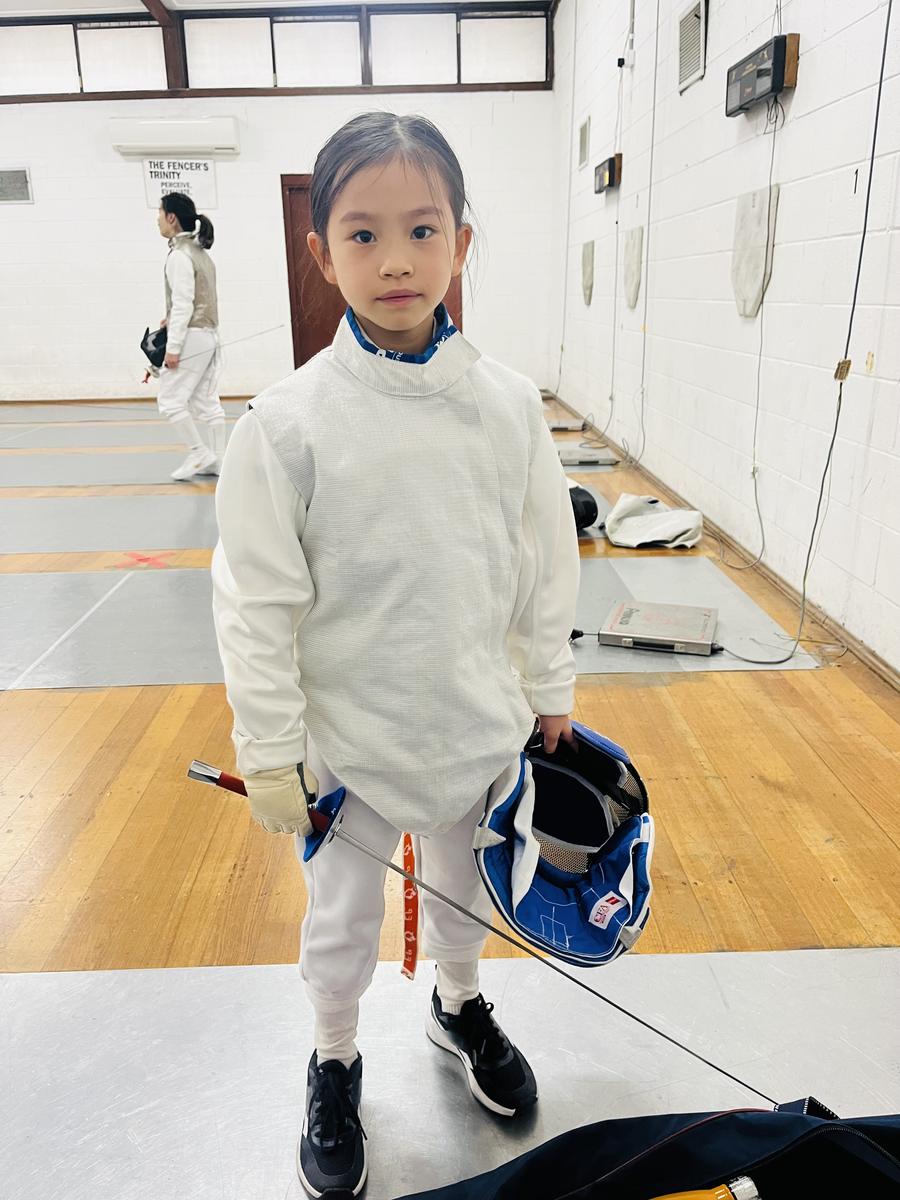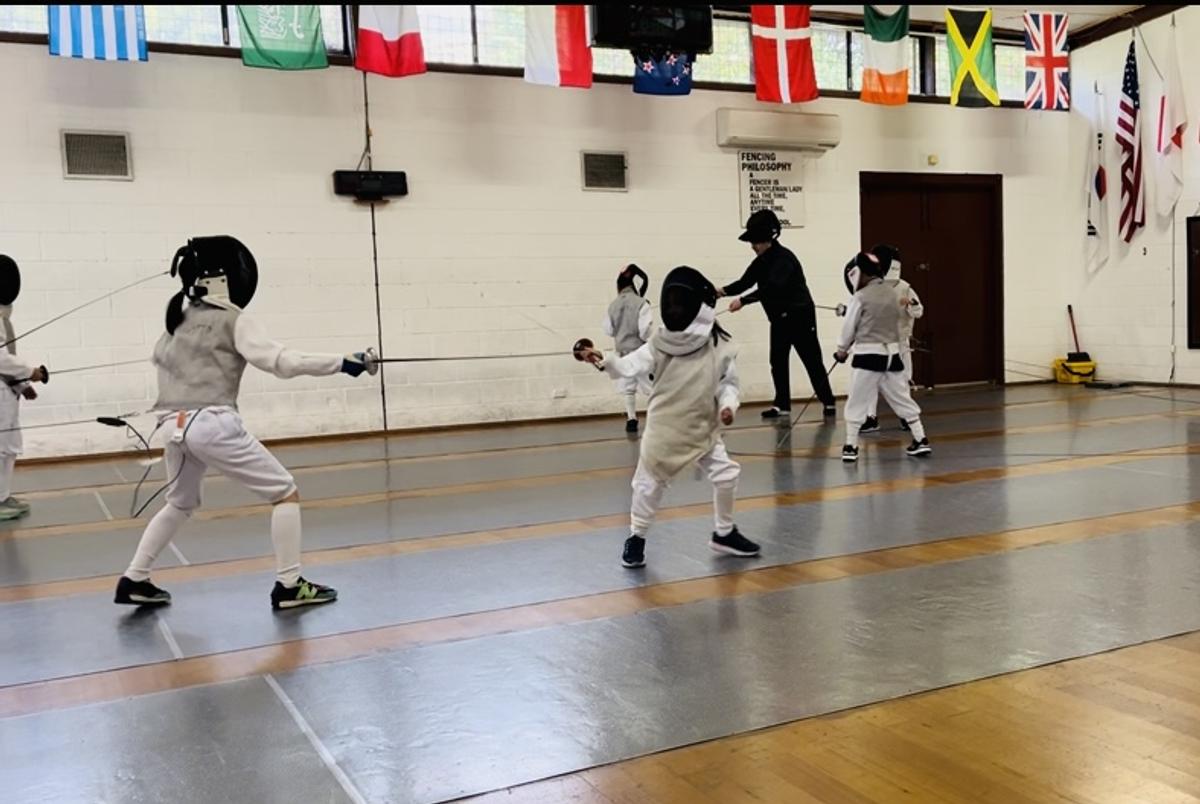Deputy Principal's Report
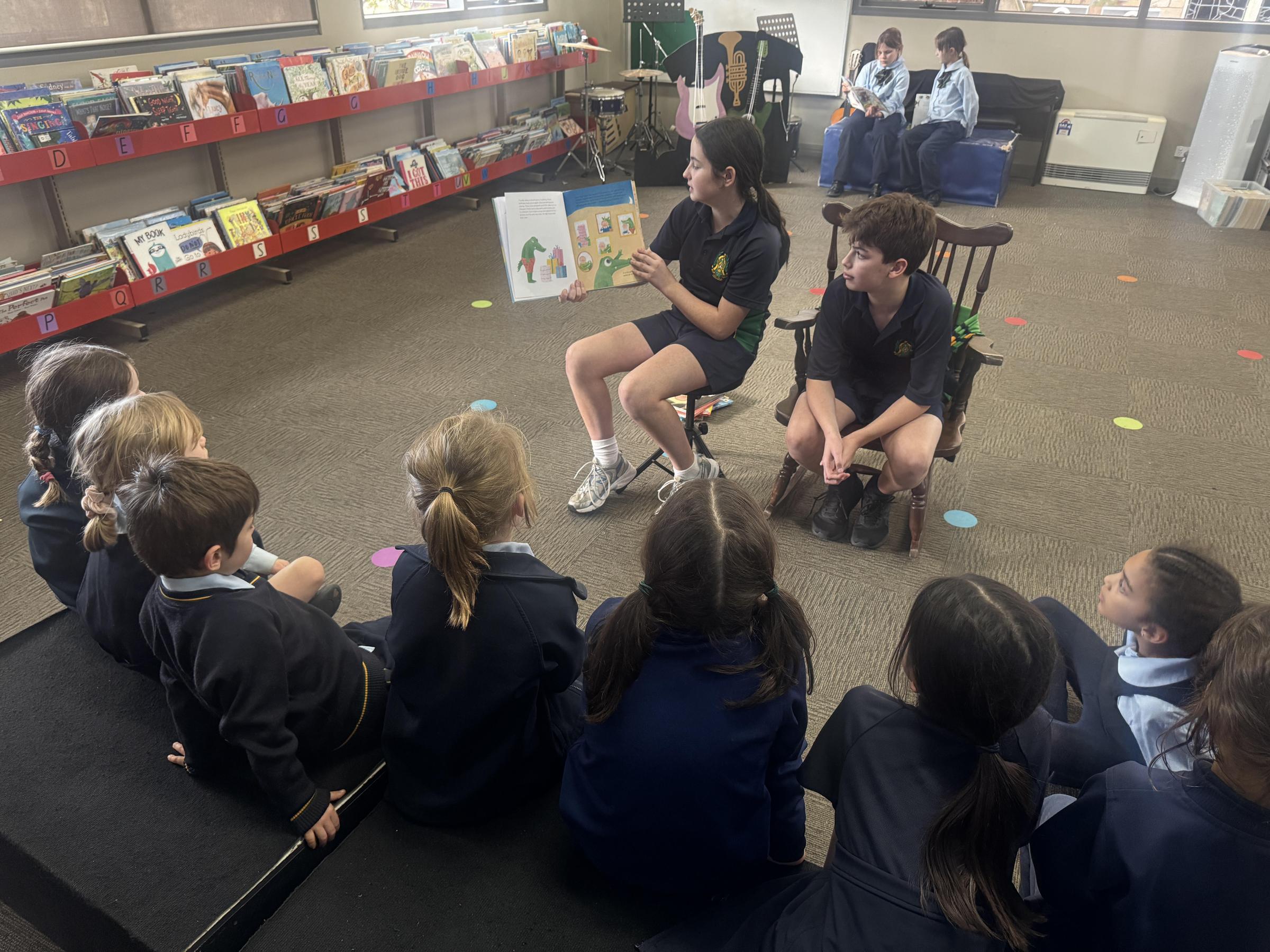
Hello!
Save the Date
We are excited to invite all families to a special Parent Information Night hosted by Toolbox Psychology with Psychologist David Berlinski. This valuable session is FREE and will take place on Tuesday 1st of July from 7:00pm to 8:00pm in the school hall. The evening is targeted to an adult audience and will be relevant for all families with children of any age. David will share a range of evidence-based strategies that support children and adults with emotional regulation. Please refer to the image on the right for more information. It is a wonderful opportunity to gain practical tools and insights to support your family’s wellbeing – we encourage all parents and carers to attend. Please fill in this google form to register your attendance.
The Annual Teddy Bear Sleepover
Coming up this fortnight, we have our much anticipated Teddy Bear Sleepover. We encourage each student to bring a teddy on the dates listed below, along with a non-perishable food item to contribute to the St. Vincent de Paul food drive.
Prep and Year 1 - Monday 16th of June
Year 2/3 - Tuesday 17th of June
Year 4/5/6 - Monday 23rd of June
We will share what the teddies get up to on Seesaw for all our students and families to enjoy.
FREE Parent Resources
Many families have reached out to us seeking resources to support themselves, their families and their children. Each fortnight, we’ll share a selection of helpful tools—including professional development sessions, books, podcasts, and more—that you may find valuable. We’re all doing our absolute best, and these resources are here to support our growth, understanding, and shared learning journey. If you find any resources yourself, please share them with us to share with the parent community in the future.
Resource 1 - FREE Parental Webinar
Monday, June 30th, 2025 at 7:00 pm
Below is an excerpt from The School of Play discussing their upcoming FREE webinar.
Is screen time taking a toll on the mental and physical well-being of your students or family? You're not alone. In today's fast-paced, tech-saturated world, connection and meaningful interaction are being replaced by endless scrolling and digital distractions. Join The School of Play for a powerful and practical FREE 45-minute webinar designed to help families and schools reclaim joy, movement, and togetherness without devices.
Register your interest via this link
Resource 2 - Anxiety Support for Parents and Children
Swinburne University are currently offering a program being offered by the Swinbrne Univesity Psychology Clinic - "One Step at a Time Program: Parent Support for Childhood Anxiety".
This program offers low cost assessment and support to help parents manage childhood anxiety in their own children aged 6 - 11 years old.
Please see the flyer attached for more information.
Excellence – The St Finbar’s Way
Celebrating Students Who Strive to Be Their Best
This fortnight, we’re celebrating the incredible efforts of Year 3 student, Bevia! Bevia is a hardworking learner who always gives her best, whether she’s tackling new challenges in the classroom or showing dedication and focus in her fencing lessons. Keep up the amazing work, Bevia – we’re so proud of you and have noticed all your hard work!
What do you most enjoy about school at St. Finbar’s?
Bevia: I like the learning a lot and I liked running in Cross Country
What is your favourite subject at school and why?
Bevia: Maths, because you can solve equations and have new challenges
Can you share a moment where you felt really proud of something you achieved at school?
Bevia: I felt proud when I completed NAPLAN this year.
How do you stay focused and motivated during busy or difficult school days?
Bevia: I just try to clear my head and think so that I can get my work done.
What’s a subject or project at school have you worked really hard on recently? What made it challenging or rewarding?
Bevia: We wrote about the First Fleet and you had to write all about a convict that was inside the ship. That was rewarding because I wrote a lot and I think my writing was really good when I read through it.
What activities do you enjoy doing outside of school?
Bevia:Fencing, running and playing piano.
Have you competed in any tournaments or concerts? Tell us about one that was especially memorable and why.
Bevia: I competed in a fencing tournament a few weeks ago. It was really fun and challenging. I fenced 5 people and came really close to winning many matches.
What are some key skills or lessons you’ve learnt from fencing that help you in everyday life or school?
Bevia: Not to give up and keep persevering
What helps you keep going when things get hard?
Bevia: When it’s challenging I just keep trying. Sometimes when I feel like quitting, I ask my Mum or Dad or teachers for help.
How do you bounce back after a tough day?
Bevia: I love reading books and doing my homework.
Do you have any advice for other students about staying positive and working hard, even when things don’t go to plan?
Bevia: Just keep trying
What’s one goal you’re working towards next — in school, fencing, or both?
Bevia: I want to get into the competition at the end of the year for fencing. It's a really big competition.
Nationally Consistent Collection of Data (NCCD) On School Students with Disability
Please see below a repeated message from the previous Newsletter - by law, I am mandated to provide this information to the school community 3 times leading up to August 1st - this is entry 3 of 3.
What is the Nationally Consistent Collection of Data?
Schools must now complete the Nationally Consistent Collection of Data on School Students with Disability (NCCD) every year. It counts the number of students who receive additional adjustments or “help” at school because of a disability. The NCCD helps governments plan for the needs of students with disabilities.
Who is counted in the data collection?
To count a student in the NCCD, schools must think through some key questions:
1. Is the student getting help at school so that they can take part in education on the same basis as other students?
2. Is the help given because of a disability? The word ‘disability’ comes from the Disability Discrimination Act 1992 (DDA) and it can include many students.
3. Has the school talked to you or your child about the help that they provide?
4. Has the school kept records about the help they provide, the student needs and the reasons that the student needs this help?
The school will need to keep copies of tests, student work, assessments, records of meetings, medical reports or other paperwork and information about how the student’s learning is moving along over time.
Once the school decides that the student should be counted in the NCCD, they then choose a disability group and one of four levels of help that has been given to the student.
What does the word ‘disability’ mean in the NCCD?
In the NCCD the word ‘disability’ comes from the Disability Discrimination Act 1992 (DDA). There are four types of disability that the school can choose from: sensory, cognitive, social-emotional and physical.
Many students that need help at school can be counted in the NCCD. For example, students with learning problems, e.g. specific learning disability or reading difficulty (sometimes called dyslexia), health problems (e.g. epilepsy or diabetes), physical disability (e.g. cerebral palsy), vision/hearing loss and social-emotional problems (e.g. selective mutism, Autism Spectrum Disorder, anxiety).
Letters from doctors or specialists can be very helpful for schools as they plan how to support students with their learning. Schools do not need to have these letters before they can count a student in NCCD. Teachers can use all that they know about the student’s learning and the records that they have collected over time to decide if a student can be counted in the NCCD.
What sort of help does the school give students?
Students need different types of help at school. Some students need a little help sometimes while other students need a lot of help nearly all the time. The type of help given depends on the needs of the student. The help can include changes to the school buildings or grounds (e.g. ramps or things like special desks or chairs), extra teacher help in classes, special learning programs, changes to the work they give the student or extra adult help.
How will the NCCD be different this year?
All schools have been counting students in the NCCD since 2015. The government will use the NCCD data as part of the funding to schools.
What will the school need to know about my child for the NCCD? Schools work together with families to understand the needs of each child. It is helpful if families give their child’s teacher a copy of any letters or reports they have. The letters or reports will help the school understand the child and the help that they might need. Letters from doctors, psychologists, speech pathologists, doctors, and occupational therapists etc. can be very helpful for schools. These reports along with information that the teacher has (i.e. school based tests, your child’s work and learning plans) helps the school to understand and meet your child’s needs.
What happens to the NCCD data? Who will have the NCCD information?
Each school principal must check the NCCD data in August of each year. The school will give the information to the Catholic Education Office. The school will work with the Catholic Education Office to make sure that the NCCD data is OK before they give the data to the government. The government will not be given the names of any students or any letters or records. Please ask your school for their privacy policy if you need to know more.
Does the school need me to agree with them about counting my child in the NCCD?
Amendments were made to the Australian Education Act 2013 and Australian Education Regulation 2013). Schools do not need you to agree to let them count a child in the NCCD. You cannot ask the school not to count your child.
Where can I find out more?
Please contact your child’s school if you have further questions about the NCCD.
Have a great week - May God Bless
Laura and Callum
Deputy Principals
